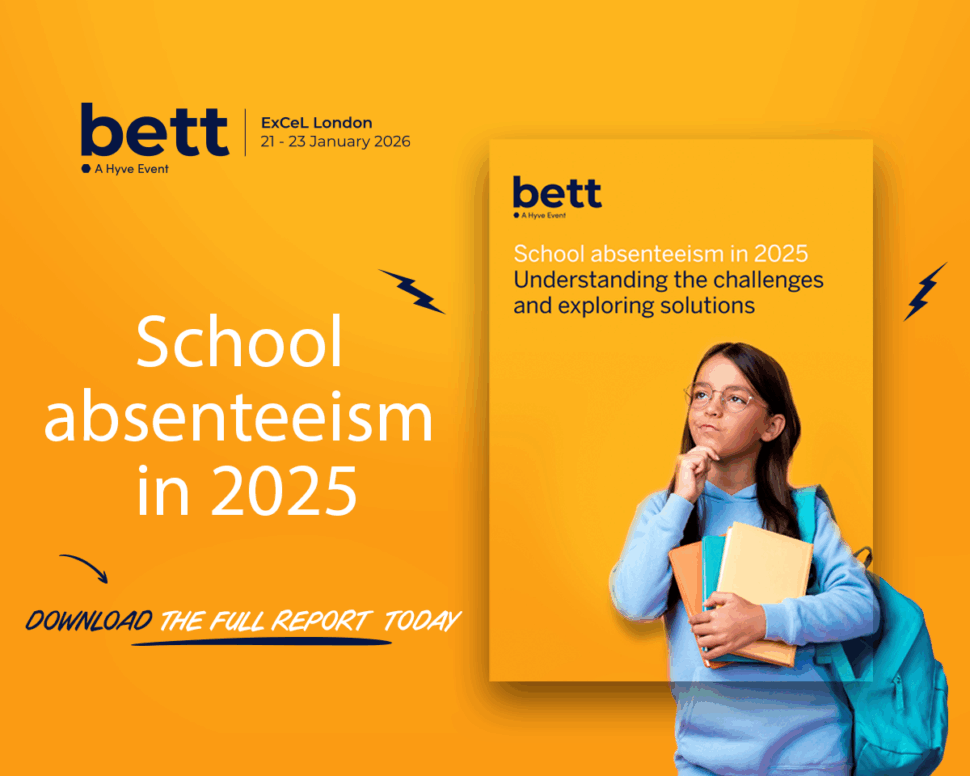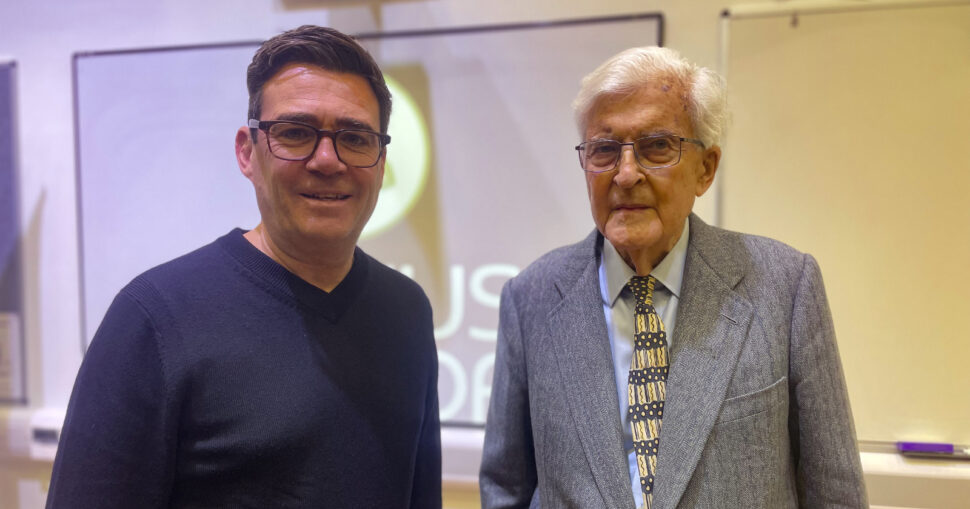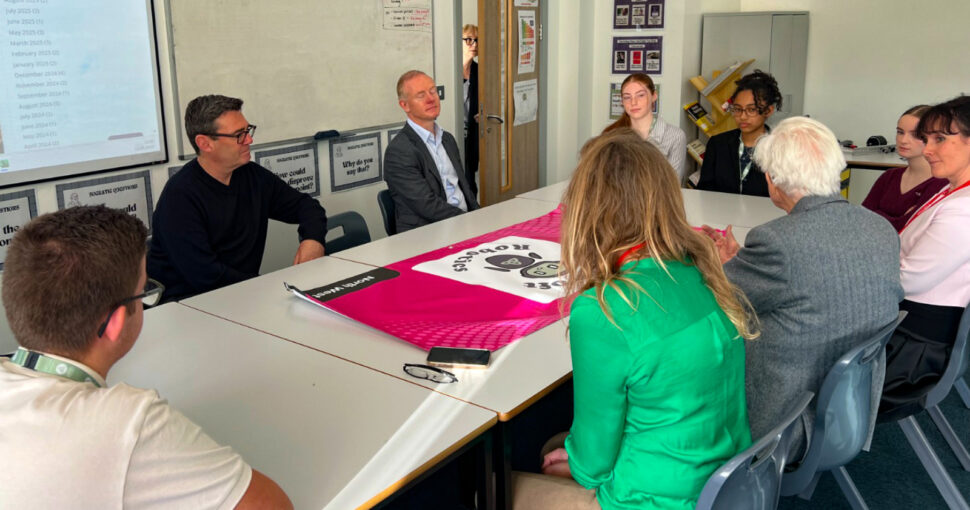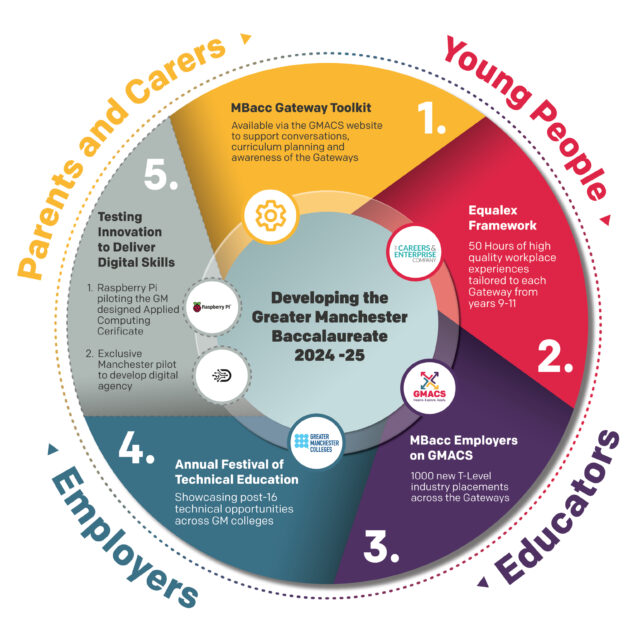It is the mission that every learner, everywhere, will have the chance to discover their brilliance, shape their future, and make their mark on the world. A promise that knowledge will not be hoarded but shared. That opportunity will not be rationed but opened wide. That learning will not stop at any age, border, or barrier.
Education is the spark that ignites curiosity.

It is the bridge between cultures, the engine of innovation, and the compass that guides us through uncertain times. From the first crayon scribble to the final graduation cap, from apprenticeships to reinvention in mid-life, learning shapes who we are and who we dare to become.
Every day, in classrooms, workshops, homes and communities across the world, educators turn obstacles into opportunities, technology into tools, and lessons into life-changing moments. They prove that innovation is not just found in code or circuitry, but in creativity, compassion, and courage.
Learning without limits is more than a theme, it is a movement.
It is the will to tear down the walls that block learning walls of inequality, inaccessibility, and outdated thinking.
It is the vision to reach every learner, whether in a crowded city school, a rural village, or a refugee camp.
It is the power to unite human connection with the tools of tomorrow, AI, XR, and ideas not yet imagined, so education does not simply keep pace with the future but shapes it.
At Bett, we celebrate those who make this real:
The community-built learning centre on the edge of São Paulo, alive with music, science, and hope.
The rooftop school in Kuala Lumpur where pupils harvest rainwater to cool their lab, learning that science can solve problems they see from their own windows.
The community college in San Diego where veterans, artists, and engineers share the same workshop, each learning a new craft.
The adult learning centre in East London where parents study for degrees alongside their children’s homework hour.
Learning without limits means no learner left unseen, unheard, or underestimated.
It means the courage to combine the heart of teaching with the power of technology we have yet to invent. It means refusing to accept that where you are born determines how far you can go.
This January at Bett, we gather not just to showcase what’s new, but to ignite what’s next.
We are here to inspire, to challenge, and to commit to building a world where learning knows no boundaries.
You are part of this mission.
Whether you teach, design, lead, or spark curiosity at the kitchen table, you carry the promise forward every day.
Better education for all is not just our goal, it is our shared responsibility, our greatest opportunity, and our boldest promise. Because when everyone can learn without limits, there is no challenge we cannot meet, and no future we cannot build together.
This is our moment. This is our demand.
Let’s make learning limitless.

What’s on at Bett UK 2026?
Bett UK 2026 is gearing up to be our most ambitious edition yet. After a record-breaking 2025, with a 23% surge in educator attendance and the largest exhibitor showcase in our 40-year history, we’re raising the bar once again. From vibrant community spaces to future-shaping technologies and fresh, forward-looking content, Bett 2026 is set to be an unmissable celebration of progress, purpose and possibility.
World-class content: learning without limits
Our most exciting programme yet is here, packed with trailblazing thinkers and innovators exploring one powerful theme: learning without limits. Featuring Hannah Fry, Amol Rajan, Vivienne Stern MBE, Ofsted, and many more sector-leading voices, this year’s line-up will spark bold conversations on AI, digital strategy, skills, careers, esports and everything shaping the future of learning.
Across Higher Education, SEND, Teaching & Learning and every corner of the sector, you’ll discover fresh perspectives, practical tools and free CPD designed to transform your practice and inspire meaningful change across your institution. From the big debates that challenge the status quo to hands-on sessions offering actionable takeaways, Bett UK 2026 has been carefully curated to equip every visitor with the clarity, confidence and creativity needed for the future.
Community-led spaces: find your people, share your voice
Education thrives on community and Bett UK 2026 shines an even brighter spotlight on the peer-to-peer connections that make our sector special. Back by popular demand, the MSP Village and SEND Village return for 2026. These vibrant, community-led spaces were created to bring peers together around shared challenges and real-world opportunities. Curated with partners, educators and experts, these hubs offer networking, content, workshops and rich resources in an environment built on collaboration and shared purpose.
Tech User Labs now on the show floor
One of last year’s standout programmes, Tech User Labs, was oversubscribed by more than 400%. So, in 2026, we’re making them bigger, better and more accessible by moving them directly onto the show floor. These 45-minute, hands-on sessions are your chance to experience real solutions in real time from Intel, Kahoot, Microsoft, ASUS and many more. Learn how to get more from your existing tools, test new products, troubleshoot pain points and build your institution’s digital confidence. Slots for Tech User Labs fill fast, so get your ticket and sign up when programmes go live very soon.
Women in EdTech: celebrating leadership, championing change
Bett is committed to elevating diverse voices, and our Women in EdTech initiative returns refreshed and expanded for 2026. This influential space celebrates the women shaping the future of EdTech from founders and innovators to classroom leaders, researchers and policymakers.
The Women in EdTech Mentoring Circles return for 2026 after a hugely successful launch last year. Designed as a supportive, safe space for women across both education and EdTech, the circles bring peers together to share experiences, offer advice and build meaningful connections. Whether you’re a woman in the sector or an ally championing female leadership, the Mentoring Circles provide an invaluable opportunity to learn, connect and grow.
Introducing EdTech 10: the innovators to watch
New for 2026, we’re unveiling the EdTech 10 List, a celebration of the ten trailblazing females redefining the next era of education technology. This list goes beyond recognition; it’s a platform to highlight impactful work and success stories of women revolutionising the EdTech landscape. Being part of this initiative means inspiring others and connecting with fellow innovators. Join us as we recognise their achievements live at Bett UK 2026.
Brand new for 2026 – Operational Transformation Theatre
The Operational Transformation Theatre explores how innovation can reshape the way schools operate behind the scenes. It focuses on smarter use of people, money, data and digital tools to improve efficiency, reduce workload and strengthen long-term resilience. By showcasing practical strategies and technologies, it empowers school leaders to reimagine operational systems and create the conditions for educational excellence. Ultimately, it demonstrates how thoughtful operational change can unlock time and resources, motivate staff and drive better outcomes for students.
Hear from Stephen Morales on connecting people and systems for operational excellence, James Garnett on strengthening IT security, and James Browning on using AI to power smarter, more resilient trusts. With more expert-led sessions throughout the programme, this theatre is your go-to for practical insights that turn innovation into impact.
The HE Campus: a home for Higher Education futures
Higher Education is evolving at pace, and Bett’s HE Campus is the dedicated destination for leaders, academics and digital strategists navigating that change.
The HE Campus offers deep insight into digital transformation, academic innovation, AI adoption, student experience, micro-credentials and the changing business models of HE. It’s a rich, future-focused environment built for bold thinking and sector-wide collaboration. Expect to hear from Amol Rajan and Vivienne Stern, Prof. Doug Delpha, Marie-Aude Sourd and so many more.

School Absenteeism in 2025: What’s really going on behind the numbers?
Across the UK, schools are grappling with a sharp rise in pupil absenteeism yet the story behind those missed days is far more complex than a simple crisis of attendance. Our new report, School Absenteeism in 2025, takes a look at the forces reshaping how young people experience school, from shifting parental expectations to the growing emphasis on emotional wellbeing. Rather than pointing to a single cause, the findings reveal a system in transition, where engagement, mental health and the evolving purpose of schooling are deeply intertwined.
One of the most striking insights is the changing role of the modern parent. Families today allow an average of six “mental health days” per year, signalling a growing recognition that emotional resilience is just as important as academic progress. While parents still deeply value education, many feel empowered to question traditional norms around discipline and attendance, especially when they see their children under strain. This cultural shift, accelerated by the pandemic, suggests that many families now view school through a wellbeing-first lens.
At the same time, today’s learners are growing up in an entirely new educational landscape, one where autonomy, flexibility and personalised support aren’t seen as “nice-to-haves” but as essential for motivation and belonging. With hybrid learning models, adaptive technologies and differentiated pathways becoming more familiar, students are increasingly aware of what helps them thrive. The report highlights that disengagement rarely stems from disinterest alone; more often, it’s about whether young people feel safe, supported and connected – emotionally as much as academically.
As schools navigate these shifting expectations, the opportunity lies in re-imagining attendance not as a compliance metric, but as a barometer of connection. School Absenteeism in 2025 brings together data, practitioner insights and lived experience to help educators understand what’s changing and where meaningful solutions can take root.
Inside the report
- 97% of parents now say mental health is just as important as academic success.
- 3 IN 4 have allowed their child a ‘duvet day’ to rest or recharge.
- 55% believe personalised learning could help improve attendance.
- 1 IN 3 support a hybrid approach to schooling.
Download it today and keep the conversation going at Bett UK 2026 this January.
The countdown to January begins now
Whether you’re exploring solutions to immediate challenges, scouting what’s next in EdTech, or looking to sharpen your vision for long-term transformation, Bett UK 2026 is your chance to connect, learn and lead. Educators go free, join us 21–23 January 2026 at ExCeL, London!







